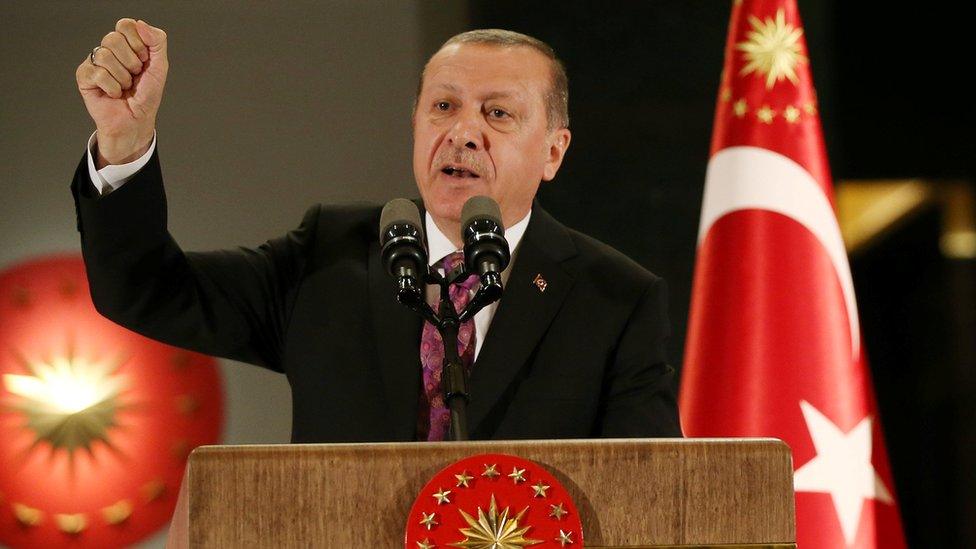G20: Hamburg shuts down ahead of summit protests
- Published
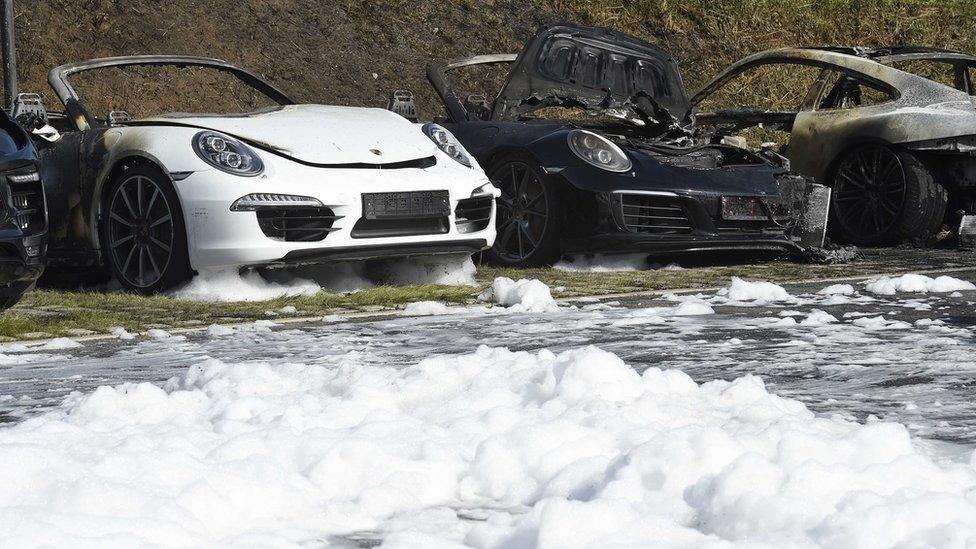
A luxury Porsche dealership was among the early victims of unrest in Hamburg
Hamburg is shutting up shop. Windows boarded up, manhole covers sealed.
The prime ministers and presidents have yet to arrive, but protests have already turned to violence.
Earlier this week, police used water cannon to disperse demonstrators and there have been scuffles as officers tried to clear small tented camps set up by protestors.
Last night, a Porsche garage was torched. On Thursday night a huge demonstration is planned. On Friday, protesters aim to stop world leaders getting into the summit.
At Hamburg's police headquarters, there is an atmosphere of nervous tension. Teams of officers in minibuses drive in and out past lines of water cannon and police vans, parked up and ready for action. About 20,000 officers are on duty over the course of G20.
The police, it seems, are taking no chances. They say up to 8,000 extremists, armed with home-made weapons, are targeting the city.
Police use water cannon on hundreds of protesters
"Some of these militants will be very aggressive," said Ralf Martin Meyer, the chief of Hamburg police. "In the last few days we've seized improvised weapons like slingshots, ball bearings and fire extinguishers filled with flammable liquid which were intended for use against police officers.
"The amount of tools and weapons we found make us very concerned."
The police operation has divided opinion in Germany. Too many officers, too heavy handed, say those worried that the decision to seal off part of the city centre and keep protesters out is an infringement of Germans' right to peaceful protest.
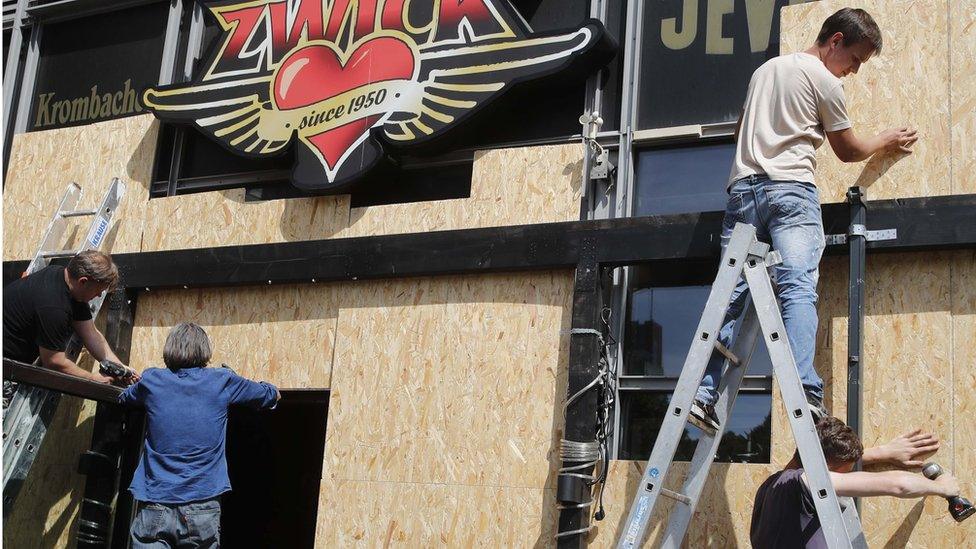
No beer here - this bar was being boarded up ahead of the expected protests
As mounted units patrol the area around the summit hall and workers in orange overalls use forklift trucks to place concrete blocks along the pavement, many question the wisdom of holding an event like this in a congested city centre.
German Foreign Minister Sigmar Gabriel proposed that G20 summits should held regularly in the United Nations building in New York instead of being hosted by the country which holds the rotating presidency, citing high costs - suspected to be at least €150m (£130m) - and security concerns.
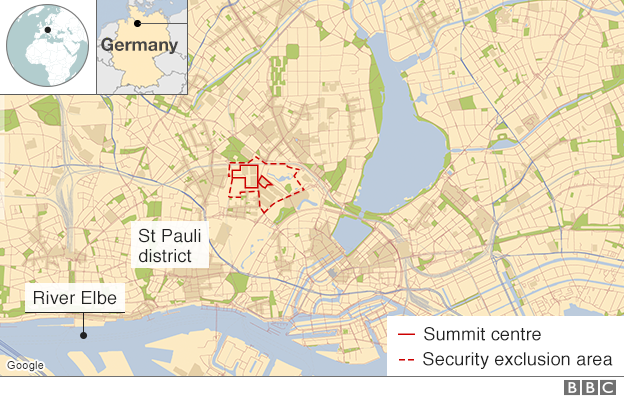
No less controversial are the political dramas which will play out inside the summit. Germany has set the agenda - climate change, trade, migration, terrorism, health.
But the spotlight will be on US President Donald Trump, who is due to meet Russian President Vladimir Putin here for the very first time.
Commentators fear little will be accomplished and that the summit's final communique may be a watered-down affair.
But as Cord Jakobeit from Hamburg University puts it, there have been other controversial summits.
"It's a matter of: how do you want to afford diplomacy? Why do you have embassies in other countries?" he said.
"At least in the German DNA for the understanding of foreign policy, it's an absolute necessity to talk, to keep talking, even to those who you're disagreeing with."
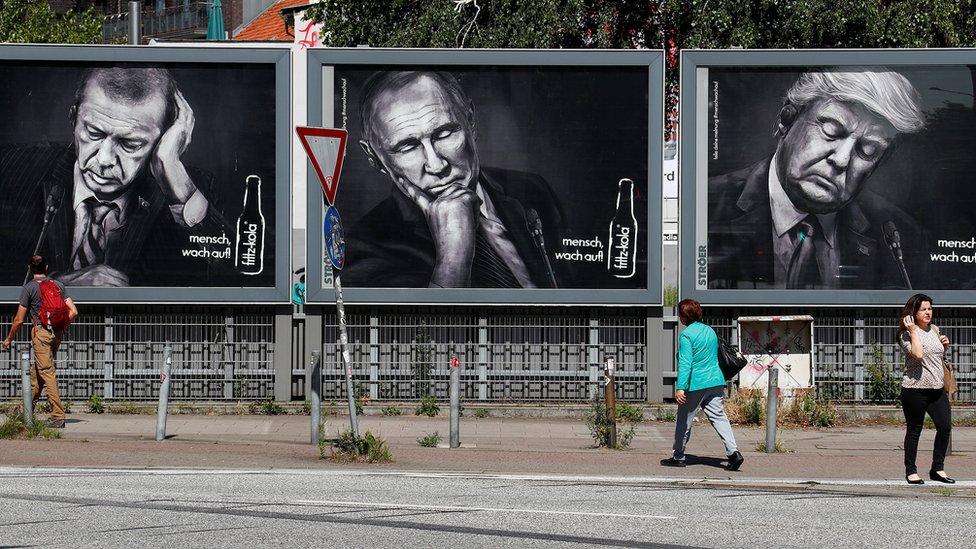
The city is dominated by the summit - even down to its advertising
German Chancellor Angela Merkel has been rallying the troops, hosting European, Indian and Chinese leaders in the run up to the summit. She's hoping to present a united front against Mr Trump on climate change in particular.
It's perhaps no accident that Hamburg - Mrs Merkel's birthplace - was chosen as the venue. Seen by many as a symbol of free trade, it's also known as a city with global perspective.
Even before the summit begins, Germany has made its position clear. After all, what's decided in this historic port city will resonate around the world.
- Published6 July 2017
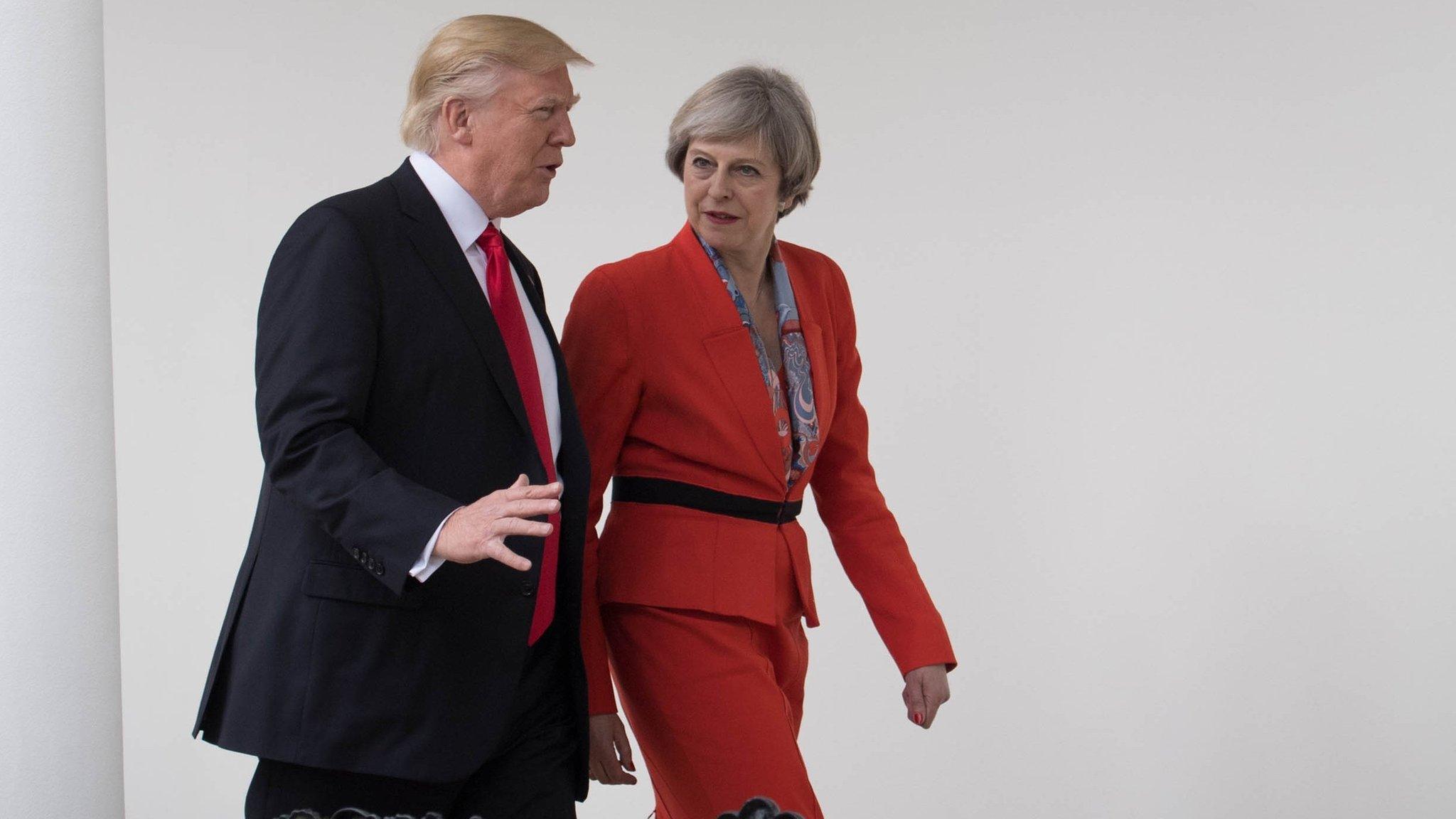
- Published29 June 2017
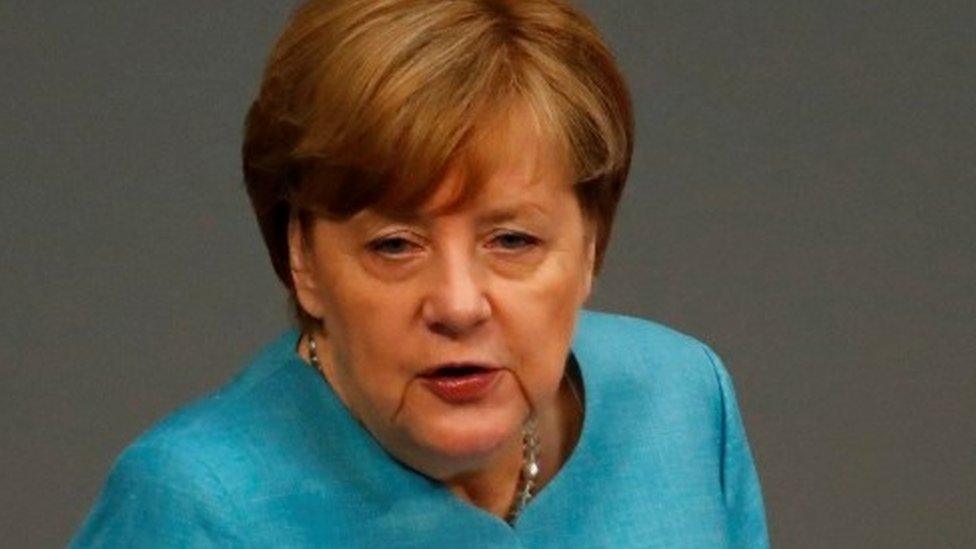
- Published29 June 2017
